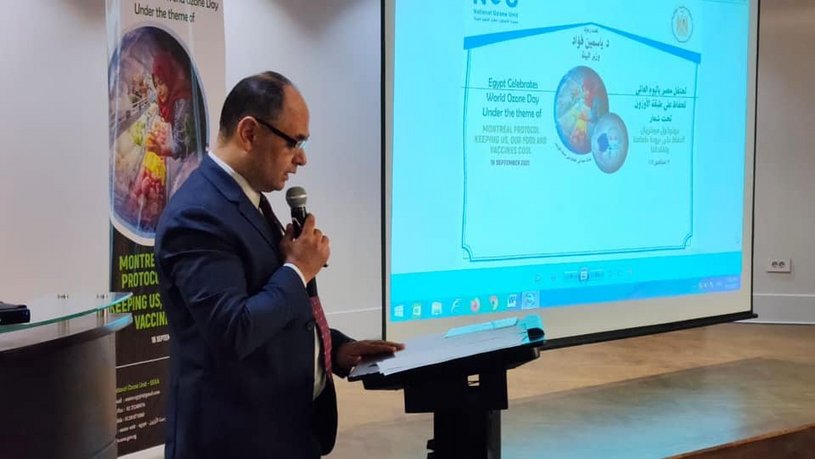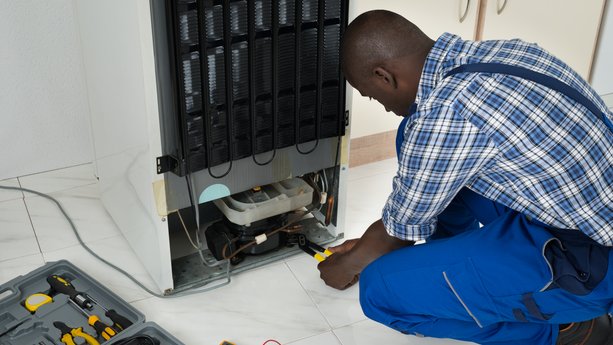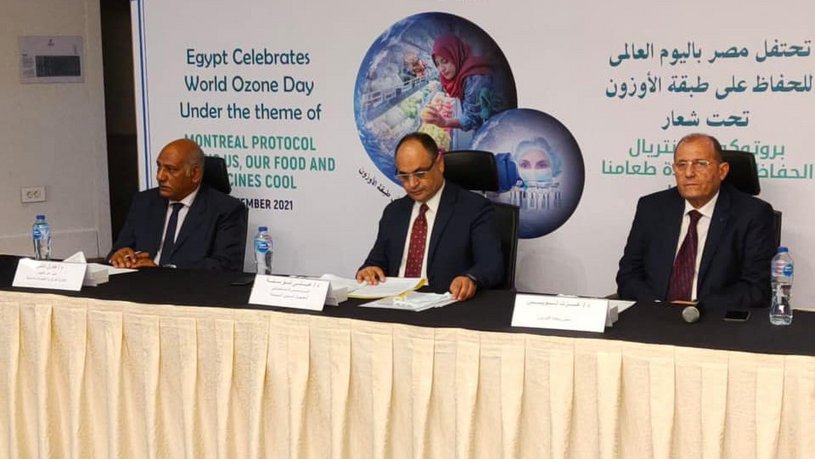Attending the ceremony were representatives of the National Ozone Unit and the Environmental Protection Agency
Egypt celebrated World Ozone Day 2021 in the presence of Dr Ali Abo Sena, CEO of the Environmental Affairs Agency and affiliates of the National Ozone Committee. The day focused on various environmental issues related to the protection of our planet. Dr Ezzat Lewis, the head of the National Ozone Unit of the Ministry of Environment, reaffirmed Egypt's commitment and efforts in mitigating greenhouse gas emissions from cooling equipment and promoting Green Cooling technologies. This year's theme "Keeping us, our food, and our vaccines cool" once again shows the strong relation of the Montreal Protocol to the cooling sector, and how it prevents food losses and supports the storage of medicines and vaccines.
Text 2

The National Ozone Unit of Egypt is the first of its kind in African & Arab countries established within the Ministry of Environment in 1993, and has the following objectives:
- Enhance capacity and actions to provide a suitable climate in the country for the expeditious phase-out of ODS.
- Increase coordination, promotion, and monitoring of the country's activities for phasing-out of ODS, with a view to the HCFCs phase-out targets.
- Raise awareness on the topic.
- Enhance facilitation in the exchange of information with other parties and organisations established by the Montreal Protocol.
- Improve connections between the country and the relevant organizations under the Montreal Protocol.
- Improve collection of national data on ODS consumption used for preparation of country Program report.


